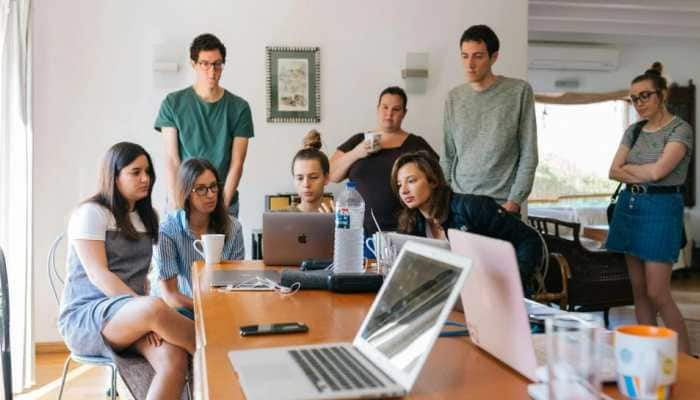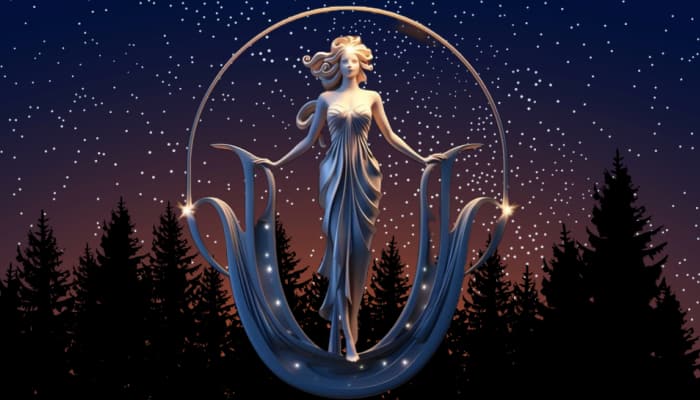BJP will surprise in UP polls: Arun Jaitley
BJP’s Arun Jaitley speaks about the party’s prospects in the 2012 Assembly polls.
Trending Photos
)
 In the four-cornered fight in Uttar Pradesh, the Bhartiya Janata Party is hoping to gain lost ground. BJP’s legal eagle and Leader of Opposition in Rajya Sabha, Arun Jaitley spoke about the party’s prospects in the 2012 Assembly polls, Narendra Modi and much more in an exclusive interview with Zeenews.com`s Swati Chaturvedi on her chat show Kahiye Janab.
Here are the excerpts.
Swati: In the 2012 UP polls, it looks like it is a fight between the Congress, BSP and SP. Where does the BJP stand?
Jaitley: I have been observing the trend in the UP elections and the strong presence of Congress that you are saying is just created by the media. Undoubtedly, Bahujan Samaj Party and Sawajwadi Party have a strong hold in UP but the Congress is nowhere in the scene. They are in a poor fourth position. BJP’s strength is growing stronger.
Swati: BSP has Mayawati, Congress has Rahul Gandhi and SP has Mulayam and Akhilesh Yadav as their party’s face for the UP polls. Is the BJP missing their face?
Jaitley: The UP election is in the strong hands of leaders like Uma Bharti, Rajnath Singh, Kalraj Mishra, Surya Pratap Sahi and Om Prakash Mishra. These veteran leaders are very influential in the state. Uma Bharti is from Bundelkhand. Despite her disinterest to fight from UP, the party felt that she is the right person for spearheading BJP in the UP polls. Her campaigning is going fine so far.
Swati: We saw you campaigning in the UP polls but where are your other counterparts like Sushma Swaraj and Narendra Modi. They are nowhere to be seen in the battlefield?
Jaitley: Let me clarify first about Sushma Swaraj. She has been travelling all over UP. Yes, she was not able to visit the state before the campaigning started as she was down with viral fever and had to skip it.
And as far as Narendra Modi is concerned, elections are happening in Gujarat this year and he is quiet busy with that. There was the Sadbhawana movement which also kept him away from campaigning in UP. We want him to come and campaign provided he gets time from his busy schedule.
Swati: There has been lot in the news about Narendra Modi in the recent past like his differences with party chief Nitin Gadkari and the recent judgment on Gujarat. Are these issues affecting BJP’s image?
Jaitley: If we make an issue out of a non-issue than we can say it will affect the party’s image. Almost every state government has some judgment against them but when it involves Gujarat it becomes big. People who suffered damages during the riots were compensated. I think the issue is whether the government should fund religious places or should the society work on it? According to my observation of the country’s law, government should not fund for the development of religious places. But now since the court has ordered the Gujarat government to fund, the government has to accept it.
Swati: There is a palpable discomfort amongst the central leadership with Narendra Modi and your ally Nitish Kumar is also unhappy with him. What do you have to say on this?
Jaitley: You may agree with a person or disagree. What happened in Gujarat is unfortunate and we condemn it.
The Gujarat police investigation did not throw up any evidence against Narendra Modi. Similarly the SIT set up by the Supreme Court, as per media reports could find no evidence against him. It has been more than 10 years and three different kinds of investigations have resulted in nothing against the CM. The story has to end somewhere. But despite the baggage of Gujarat riots, Modi is running the government well and the state is walking on the path of success.
Swati: Do you think Narendra Modi can become BJP’s president or the PM of the country?
Jaitley: I will not like to start a debate on the speculation done by the media. I think the party will decide this on this at the right time. But I would like to add that a person should be judged on his performance and not on prejudice.
Swati: Do you want to be the president of Bhartiya Janata Party?
Jaitley: I am a very ordinary party worker. It’s been more than 40 years of my involvement with the ABVP and BJP. I will follow any responsibility given to me by the party.
Swati: You have a clean image in the party; can we see you standing for election in the near future?
Jaitley: Apart from ideologically, I am also emotionally attached with the party. If the party asks me to, I will have no objection in fighting an election.
Swati: In the UP polls, do you think Rahul Gandhi is working very hard for his party?
Jaitley: All the party workers are giving their best and if the media shows more footage of one particular leader, it doesn’t mean that the other party leaders are not working hard. On the ground everyone is working hard. There are few families which are officially patronized by the media, who love to highlight them.
Swati: What is your party doing on the Lokpal Bill?
Jaitley: India needs a Lokpal - A Lokpal Bill which is strong and unbiased. The three big amendments that we raised in the Rajya Sabha should be incorporated in the government bill and we will try our best to make things happen.
Swati: How should India tackle the recent Indo-Iran developments after the terror attack near the Israel embassy in New Delhi?
Jaitley: We have to think about our country’s safety against terrorism and our energy security which are both important to us. I think the government outlines its foreign relations considering the above two points. Hence the government should wait for evidence to find out who was responsible for the terror attack and then decide.
Swati: Any message for the Congress in the UP polls as an Opposition?
Jaitley: I think to give any message to the Congress is to waste my own energy. I think the Congress should try to throw out BSP and SP from UP as they have been ruling in the state for the last eight and a half years. They have replaced the politics of development to politics of dividing the society on the basis of caste. Congress is desperate as the votes are not increasing and hence they are resorting to the tactics of communal polarization.
Adaptation by Diwash Gahatraj
In the four-cornered fight in Uttar Pradesh, the Bhartiya Janata Party is hoping to gain lost ground. BJP’s legal eagle and Leader of Opposition in Rajya Sabha, Arun Jaitley spoke about the party’s prospects in the 2012 Assembly polls, Narendra Modi and much more in an exclusive interview with Zeenews.com`s Swati Chaturvedi on her chat show Kahiye Janab.
Here are the excerpts.
Swati: In the 2012 UP polls, it looks like it is a fight between the Congress, BSP and SP. Where does the BJP stand?
Jaitley: I have been observing the trend in the UP elections and the strong presence of Congress that you are saying is just created by the media. Undoubtedly, Bahujan Samaj Party and Sawajwadi Party have a strong hold in UP but the Congress is nowhere in the scene. They are in a poor fourth position. BJP’s strength is growing stronger.
Swati: BSP has Mayawati, Congress has Rahul Gandhi and SP has Mulayam and Akhilesh Yadav as their party’s face for the UP polls. Is the BJP missing their face?
Jaitley: The UP election is in the strong hands of leaders like Uma Bharti, Rajnath Singh, Kalraj Mishra, Surya Pratap Sahi and Om Prakash Mishra. These veteran leaders are very influential in the state. Uma Bharti is from Bundelkhand. Despite her disinterest to fight from UP, the party felt that she is the right person for spearheading BJP in the UP polls. Her campaigning is going fine so far.
Swati: We saw you campaigning in the UP polls but where are your other counterparts like Sushma Swaraj and Narendra Modi. They are nowhere to be seen in the battlefield?
Jaitley: Let me clarify first about Sushma Swaraj. She has been travelling all over UP. Yes, she was not able to visit the state before the campaigning started as she was down with viral fever and had to skip it.
And as far as Narendra Modi is concerned, elections are happening in Gujarat this year and he is quiet busy with that. There was the Sadbhawana movement which also kept him away from campaigning in UP. We want him to come and campaign provided he gets time from his busy schedule.
Swati: There has been lot in the news about Narendra Modi in the recent past like his differences with party chief Nitin Gadkari and the recent judgment on Gujarat. Are these issues affecting BJP’s image?
Jaitley: If we make an issue out of a non-issue than we can say it will affect the party’s image. Almost every state government has some judgment against them but when it involves Gujarat it becomes big. People who suffered damages during the riots were compensated. I think the issue is whether the government should fund religious places or should the society work on it? According to my observation of the country’s law, government should not fund for the development of religious places. But now since the court has ordered the Gujarat government to fund, the government has to accept it.
Swati: There is a palpable discomfort amongst the central leadership with Narendra Modi and your ally Nitish Kumar is also unhappy with him. What do you have to say on this?
Jaitley: You may agree with a person or disagree. What happened in Gujarat is unfortunate and we condemn it.
The Gujarat police investigation did not throw up any evidence against Narendra Modi. Similarly the SIT set up by the Supreme Court, as per media reports could find no evidence against him. It has been more than 10 years and three different kinds of investigations have resulted in nothing against the CM. The story has to end somewhere. But despite the baggage of Gujarat riots, Modi is running the government well and the state is walking on the path of success.
Swati: Do you think Narendra Modi can become BJP’s president or the PM of the country?
Jaitley: I will not like to start a debate on the speculation done by the media. I think the party will decide this on this at the right time. But I would like to add that a person should be judged on his performance and not on prejudice.
Swati: Do you want to be the president of Bhartiya Janata Party?
Jaitley: I am a very ordinary party worker. It’s been more than 40 years of my involvement with the ABVP and BJP. I will follow any responsibility given to me by the party.
Swati: You have a clean image in the party; can we see you standing for election in the near future?
Jaitley: Apart from ideologically, I am also emotionally attached with the party. If the party asks me to, I will have no objection in fighting an election.
Swati: In the UP polls, do you think Rahul Gandhi is working very hard for his party?
Jaitley: All the party workers are giving their best and if the media shows more footage of one particular leader, it doesn’t mean that the other party leaders are not working hard. On the ground everyone is working hard. There are few families which are officially patronized by the media, who love to highlight them.
Swati: What is your party doing on the Lokpal Bill?
Jaitley: India needs a Lokpal - A Lokpal Bill which is strong and unbiased. The three big amendments that we raised in the Rajya Sabha should be incorporated in the government bill and we will try our best to make things happen.
Swati: How should India tackle the recent Indo-Iran developments after the terror attack near the Israel embassy in New Delhi?
Jaitley: We have to think about our country’s safety against terrorism and our energy security which are both important to us. I think the government outlines its foreign relations considering the above two points. Hence the government should wait for evidence to find out who was responsible for the terror attack and then decide.
Swati: Any message for the Congress in the UP polls as an Opposition?
Jaitley: I think to give any message to the Congress is to waste my own energy. I think the Congress should try to throw out BSP and SP from UP as they have been ruling in the state for the last eight and a half years. They have replaced the politics of development to politics of dividing the society on the basis of caste. Congress is desperate as the votes are not increasing and hence they are resorting to the tactics of communal polarization.
Adaptation by Diwash Gahatraj






)
)
)
)
)
)
)
)
)
)
